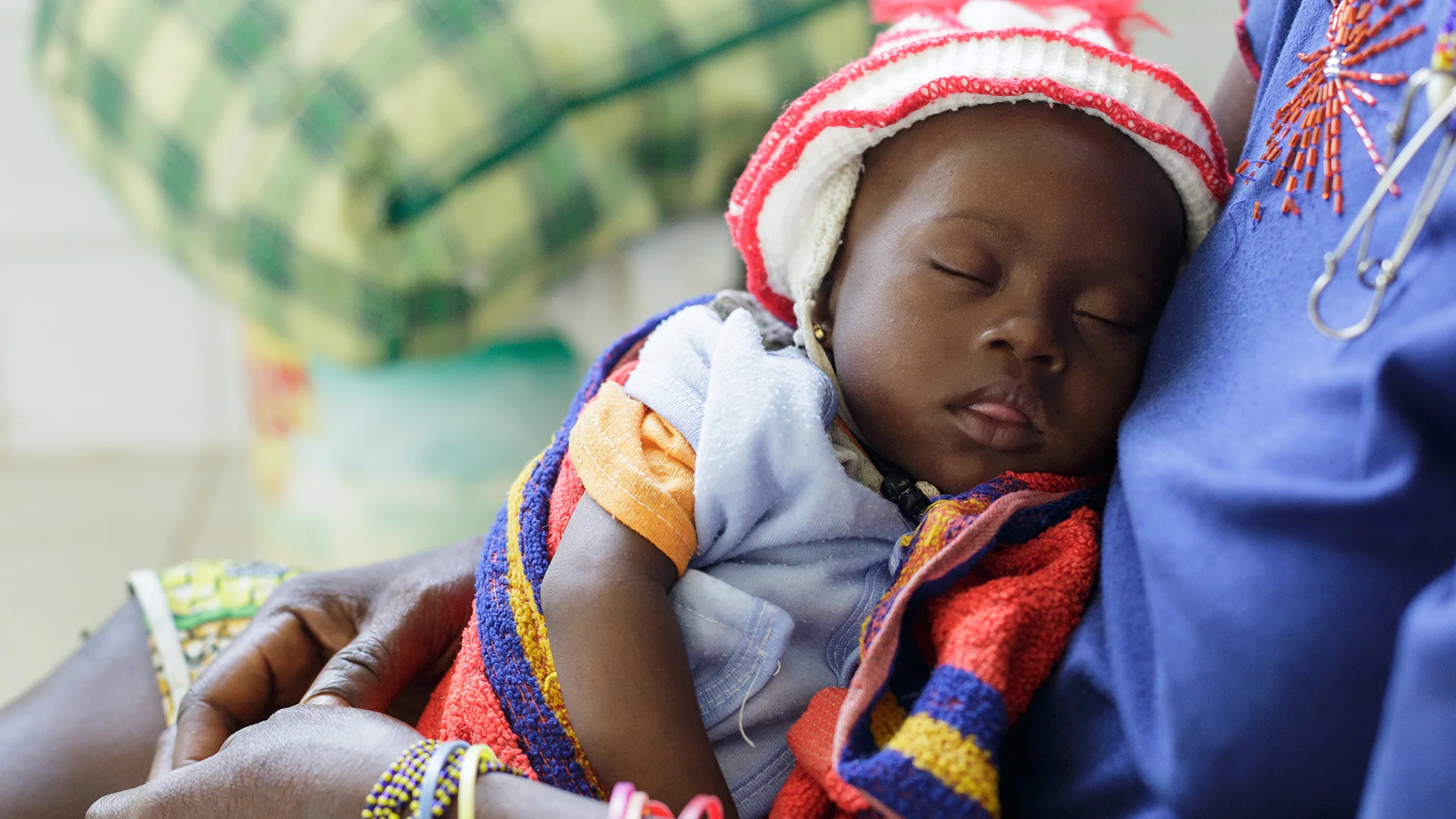Neonatal tetanus is one of the leading causes of death among newborns, claiming the lives of more than 18,000 children under the age of five each year. Since vaccinations offer reliable protection against this usually fatal infection, UNICEF, the WHO and UNFPA are committed to eliminating the disease.
The situation
Tetanus, known colloquially as lockjaw, predominantly affects the world’s poorest and weakest. The infectious disease is caused by a bacterium that releases a nerve-damaging toxin when it penetrates under the skin. Births in particular can be life-threatening: both newborns and their mothers can become infected with tetanus if delivery takes place in unsanitary conditions. Without treatment, the disease is fatal in almost every case. Even in hospitals, up to 60 percent of infected babies die. According to official figures, in 2017 tetanus claimed the lives of 18,620 children under the age of five. The number of unreported cases is high, however, as many babies are born at home and neither their birth nor their death is registered.
These agonizing deaths caused by tetanus could easily be avoided: the tetanus vaccine has enabled massive progress in controlling the disease. The result: 89 percent fewer tetanus cases and deaths since 1990. The tetanus toxoid (TT) vaccine is inexpensive and provides reliable protection. Children born to vaccinated mothers are also immune to the disease for the first few months of their lives. The most urgent task is to provide vaccinations to the most vulnerable, hardest to reach and least informed women.
How UNICEF helps
In 1999, UNICEF, the World Health Organization (WHO) and the United Nations Population Fund (UNFPA) launched the Maternal and Neonatal Tetanus Elimination (MNTE) initiative. At the time, the infectious disease was a life-threatening health risk in 57 countries. Today, it is still present in 18 countries, primarily in Africa and south-east Asia.
UNICEF supports the fight against neonatal tetanus with the following measures:
- The Children’s Fund provides vaccines and injection materials worldwide, sets up cold chains, ensures the transport of vaccines and trains local health workers on topics including hygienic birth conditions.
- Together with local authorities, UNICEF organizes national vaccination days during which millions of children are vaccinated.
- Through campaigns, UNICEF provides information about tetanus and its consequences, vaccination and the connection between hygiene and health in general.
- Together with the governments of affected countries, UNICEF is developing plans for the elimination of tetanus and monitoring their progress.
You can help too.
With your help, we can provide vaccines to women and babies to help advance the global elimination of neonatal tetanus. We thank you from the bottom of our hearts for your support.
